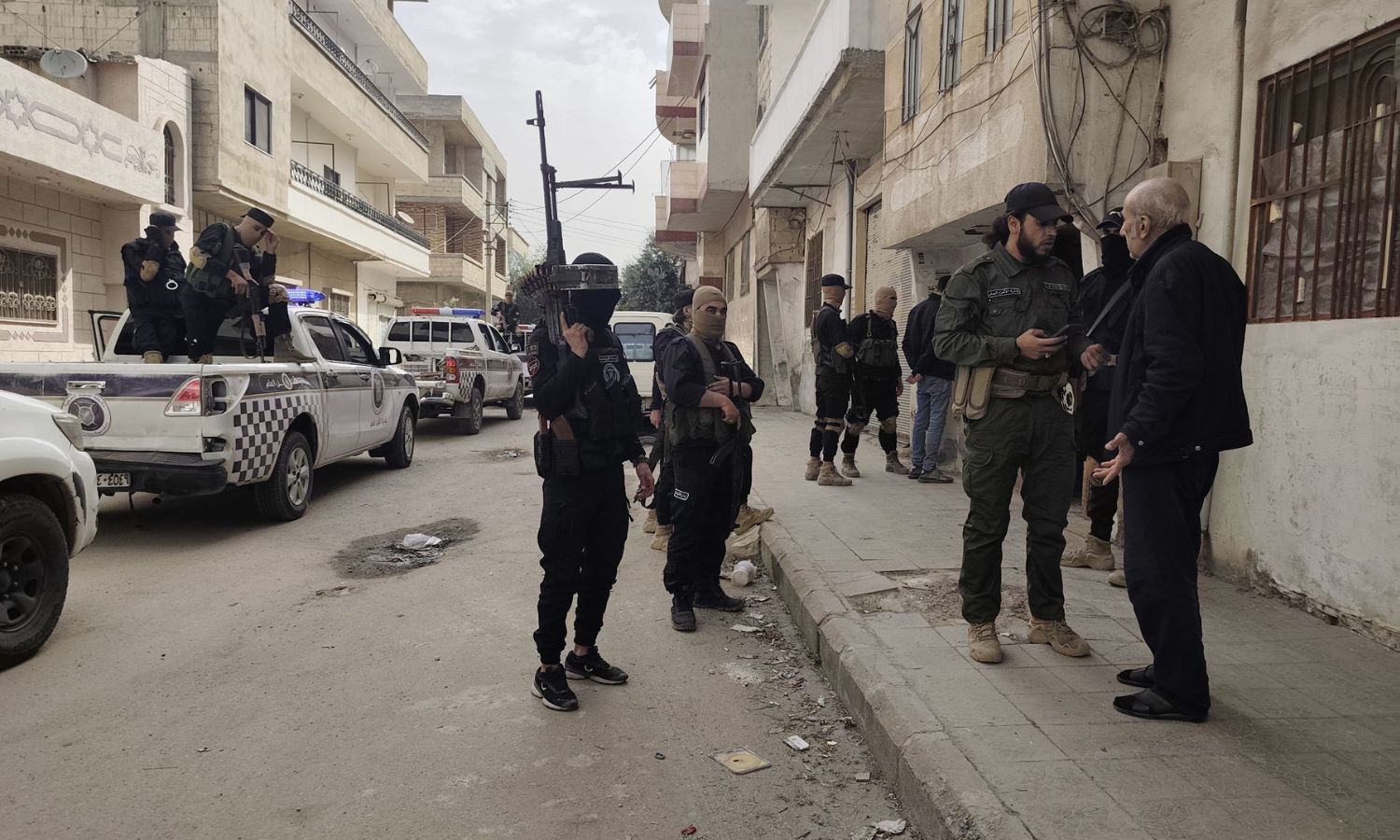The Syrian Network for Human Rights (SNHR) has documented at least 117 cases of arbitrary detention in Syria during March 2025, according to a 15-page report published today. The cases reflect the urgent need for legal safeguards to end decades of arbitrary arrests and enforced disappearances, especially in light of the political shift following the fall of the Assad regime in December 2024 and the formation of a transitional government.
According to the report:
- 11 arrests were carried out by the transitional government.
- 13 arrests by armed opposition factions (the National Army).
- 93 arrests, including 7 children, were conducted by the Syrian Democratic Forces (SDF).
The highest number of detentions occurred in Aleppo and Deir Ezzor, followed by Raqqa, Hasakah, and Damascus.
The report highlights that many of the SDF’s arrests targeted civilians critical of its practices or those expressing support for the transitional government—particularly after the SDF’s March 10 agreement to integrate into state institutions. Arrests were also reported following public celebrations where the Syrian revolutionary flag was raised.
The transitional government also detained 87 individuals, mostly former regime affiliates or those allegedly involved in attacks on security installations in Tartous and Latakia. Other arrests involved minor offenses, including public eating during Ramadan and unclarified detentions in Suwayda, Hama, Damascus, and Daraa—many of whom were released after community mediation.
Meanwhile, armed opposition factions conducted mass arrests, especially of people arriving from SDF-held areas, including ethnically motivated detentions in Aleppo. These arrests were reportedly carried out without judicial warrants or police involvement.
Releases and Ongoing Detentions
The report noted:
- 9 releases from transitional government custody.
- 14 releases from SDF facilities.
- 6 releases from opposition faction custody. Most detainees were held for periods ranging from hours to a month.
The SNHR also documented the release of 46 individuals from various detention centers following investigations that did not confirm their involvement in crimes.
Key Concerns and Findings
The SNHR report underscores serious legal and human rights concerns:
- Continued use of arbitrary detention without judicial oversight.
- Reports of torture and inhumane treatment in custody.
- Lack of transparency in release procedures.
- Ongoing cases of enforced disappearance, violating international conventions.
- Insufficient accountability mechanisms and absence of a comprehensive transitional justice framework.
Recommendations
The report calls on:
- The UN Security Council to refer the Syrian situation to the International Criminal Court and freeze assets of former regime officials.
- The UN Human Rights Council and COI to prioritize detainees and coordinate with Syrian rights groups.
- The transitional government to:
- Cooperate with international mechanisms (e.g., IIIM, ICMP, ICRC).
- Document mass graves and preserve evidence.
- Reform judicial and security institutions.
- Ensure lawful detention procedures and transparent accountability.
- Provide psychological support to survivors and families.
The SNHR stressed the pivotal role of international actors, civil society, and the transitional authorities in protecting rights and preventing the misuse of post-regime justice as a tool for arbitrary political repression.


